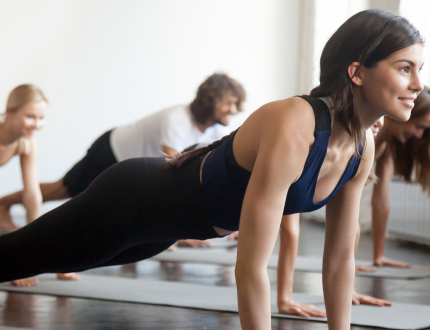WHY SLEEP IS KEY FOR YOUR WORKOUT SUCCESS
03 ธ.ค. 2567

In a society that glorifies the hustle and being busy, sleep often takes a backseat. We've all heard the tales of entrepreneurs who claim to have thrived on just a few hours of rest. And while that may work for some, the reality is our bodies need sleep to function at their best, especially if you’re aiming to achieve your fitness goals. Proper sleep not only aids muscle recovery but also supports overall physical and mental health.
As a big supporter of getting sufficient sleep, we’re going to debunk some common myths about sleep and dive into why getting enough rest is crucial for your fitness journey.
1. The Golden Rule: 7-8 Hours of Sleep
Most experts agree that 7-8 hours of sleep per night is the sweet spot for optimal performance and recovery. According to Dr. Matthew Walker, Professor of Neuroscience and Psychology at the University of California, Berkeley, and Founder and Director of the Center for Human Sleep Science, “Sleep is the single most effective thing we can do to reset our brain and body health each day.” Less than 7 hours can impair cognitive function, while oversleeping beyond 9 hours has been linked to negative health outcomes like obesity and heart disease.
2. Hypersomnia: The Hidden Impact of Oversleeping
Did you know that too much sleep can be just as detrimental as too little? Hypersomnia, or chronic oversleeping, is associated with fatigue, depression, and weight gain. Studies have found that those who oversleep are more likely to experience chronic illnesses.
3. Consistency is Key for Better Sleep Quality
According to Dr. Michael Breus, also known as 'The Sleep Doctor', sleep thrives on consistency. This means your body does well with routine, so aim to go to bed and wake up at the same time every day, even on weekends. This aligns with your circadian rhythm, which helps regulate sleep hormones like melatonin, leading to better rest and energy throughout the day.
4. Magic Number for Everyone
What's the magic number for the number of sleep hours a person needs? The amount of sleep needed varies by individual. Age, lifestyle, and fitness levels all play a role. As Dr. Rafael Pelayo from the Stanford Sleep Medicine Center puts it, “The right amount of sleep is what allows you to feel awake and alert during the day.” Listen to your body’s cues and adjust accordingly.
5. Exercise A Perfect Duo
Physical activity is a natural sleep aid. Regular exercise can improve sleep quality, especially if done earlier in the day. Studies have shown that physical activity does improve sleep quality and decreases insomnia. Engaging in moderate-intensity workouts, like a 30-minute run or strength training session can help you fall asleep faster and provide deeper sleep cycles experience.
6. Food and Drink: Timing Matters
What you eat and when you eat affects your sleep. Caffeine, alcohol, and heavy meals before bedtime can disrupt your rest. Avoiding stimulants at least 4 to 6 hours before you sleep can be beneficial in this aspect. Late-night snacks high in sugar can spike your blood sugar levels, leading to restless sleep.
7. The Dangers of Too Much Screen
Blue light emitted by smartphones, tablets, and laptops can suppress melatonin production, disrupting your ability to fall asleep. One way to address this is to consider implementing a ‘digital sunset’ by turning off devices at least an hour before bed. For the bold, placing your digital device in a separate room from the bedroom can help the unconscious reach of the devices before bed. Start replace this habit with a new one like a wind down with activities like reading or meditation.
8. Don’t Just Sleep, Rest!
True rest isn’t limited to just sleep. Incorporating mindfulness practices, stretching, and downtime throughout the day can enhance your nightly sleep quality. Take breaks to recharge and reset your mental state to minimize stress, which is a common sleep disruptor.

In Conclusion: Sleep Better, Train Harder
When it comes to achieving your fitness goals, getting consistent, quality sleep is as vital as nutrition and exercise. So next time you’re tempted to skimp on sleep, remember this: rest is your body’s natural way to repair and recharge. You’re not just recovering from the day’s activities, you’re preparing for tomorrow’s challenges.



